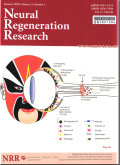A new look at auranoifn, dextromethorphan and rosiglitazone for reduction of glia-mediated inlfammation in neurodegenerative diseases
摘要Neurodegenerative disorders including Alzheimer’s disease are characterized by chronic in-lfammation in the central nervous system. The two main glial types involved in inlfammatory reactions are microglia and astrocytes. While these cells normally protect neurons by providing nutrients and growth factors, disease speciifc stimuli can induce glial secretion of neurotoxins. It has been hypothesized that reducing glia-mediated inlfammation could diminish neuronal loss. This hypothesis is supported by observations that chronic use of non-steroidal anti-inlfamma-tory drugs (NSAIDs) is linked with lower incidences of neurodegenerative disease. It is possible that the NSAIDs are not potent enough to appreciably reduce chronic neuroinlfammation after disease processes are fully established. Gold thiol compounds, including auranoifn, comprise an-other class of medications effective at reducing peripheral inlfammation. We have demonstrated that auranofin inhibits human microglia- and astrocyte-mediated neurotoxicity. Other drugs which are currently used to treat peripheral inlfammatory conditions could be helpful in neu-rodegenerative disease. Three different classes of anti-inlfammatory compounds, which have a potential to inhibit neuroinlfammation are highlighted below.
更多相关知识
- 浏览30
- 被引1
- 下载0


相似文献
- 中文期刊
- 外文期刊
- 学位论文
- 会议论文



 换一批
换一批 换一批
换一批



